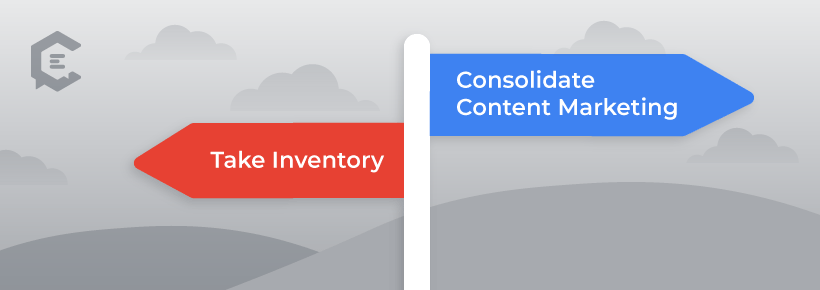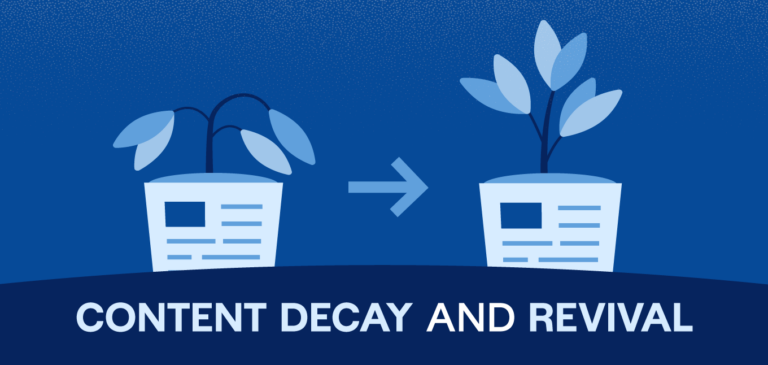At the beginning of June 2019, the world of marketing saw two of the biggest acquisitions in the last decade: Google acquired Looker and Salesforce acquired Tableau. So, what do these acquisitions mean for the world of business intelligence?
As a result, this will affect marketers across the spectrum, even those enterprise-class platforms and tools, such as Tableau and Looker.
In addition to potentially providing better service and more functionality, there are also a number of concerns and risks associated with these acquisitions.
In this article, we will discuss how these acquisitions will potentially impact content marketers, marketing agencies and businesses, and what they need to know to prepare.
Why are these acquisitions happening?
Marketers, entrepreneurs and business owners are constantly pushing to get their hands on data. Making informed, data-driven decisions is a primary goal and objective, especially for bootstrapped startups and even medium to large enterprises. In fact, according to a report published by Reuters, the global business intelligence market is expected to reach $30 billion by 2022.
But why? According to many experts and thought leaders, by the year 2022, business intelligence will look completely different. Business intelligence is expected to shift from focusing on learning “what happened and why” to focusing more on “what WILL happen.” These insights are formally known as predictive analytics and prescriptive analytics.
By reaching this high level of insights and analytics, companies of all shapes, sizes and scope will discover new opportunities faster, improve the accuracy of estimating and forecasting and make even more informed data-driven decisions.
Furthermore, the shift will also focus more on adopting and using self-service platforms, such as Looker and Tableau. In fact, according to experts, 64 percent of businesses claim that self-service platforms will allow them to gain a significant competitive advantage without the need for recruiting data science professionals.
Therefore, by acquiring smaller analytics companies and data solutions tools, this allows companies within the business intelligence world to become larger and more efficient in providing big data solutions to businesses and marketing agencies, and also help content marketers, IT teams and smaller businesses with the data discovery solutions they need.
Furthermore, with the sheer number of solutions providers on the market today, it is only a matter of time before a large, multi-billion company begins acquiring smaller companies and vendors. After all, the market can only sustain so many before there are acquisitions.
What do these acquisitions mean for content marketers and agencies?
Of course, there are advantages and disadvantages associated with nearly any market change, including an acquisition — especially one of this size and stature.
Here are some of the potential impact areas that we could see as a result.
Improved accessibility and visibility into marketing data
Before now, the available solutions we know presently have appealed to either a company’s IT department or sales and marketing. However, few solutions have provided sufficient data resources and availability for both departments, or even multiple departments.
Marketers and agencies have been pushing for more access to sophisticated data analytics tools that them to acquire the data they need for discovery and visualization and in a user-friendly manner.
As a result of the acquisitions, marketers will likely have increased and even greater visibility and access to more intelligent and “big data” solutions. After all, the majority — if not all — marketing initiatives are driven by data, including social media marketing, content marketing and public relations and communications. In many cases, these acquisitions will only make this even more possible.
Single solutions providers
One of the potential results of these acquisitions is that there will be more single-solutions providers. By consolidating tools and possible features, this can help content marketers and agencies gain access to more of what they need rather than leveraging multiple tools and solutions.
Furthermore, content marketers and agencies who have been using “off-the-shelf” marketing analytics tools will likely be better served by a single-solutions provider — one provider that offers a comprehensive tool with multiple functionalities and features.
Feature and functionality availability
Of course, on the other hand, any shift or acquisition in company direction, management or ownership can result in the execution of a different business model and product or service offerings. In some cases, this may mean that particular technologies or solutions may no longer be supported or offered, even if a company claims there won’t be any immediate changes or loss in features or functionality.
However, we are all at the mercy of the new company’s overall vision. Stakeholders, in-house knowledge and many other factors all play a role in this vision.
Next steps: What your business can do
All in all, if your business and team currently use Salesforce, Tableau or Looker or a combination of these tools, and you are concerned with how these acquisitions will impact you and how you use them, then it may be best to begin consolidating your content marketing and technology stack as much as possible.
Start by taking inventory of the tools you use and assess your own business needs. Then, review your own business needs and which tool(s) best support those needs. Get rid of the tools and features you don’t really use and see how you can leverage the tools that you do use.
If you are worried about losing a particular tool, then you may also be able to augment your tech stack with plug-ins or add-ons from other tools that offer similar functionality and features.
If your business has specific needs or strategic objectives that require more complex or customizable functionality, then you may find it beneficial to build your own tool. Of course, this option can be lengthy and a sizable investment, however, it might be one well worth it over the long term.
The future of marketing and big data
It is tough to determine the level of accessibility and how much marketers’ everyday jobs and efforts will change with these new acquisitions. This will ultimately depend on the new companies, their portfolios, and what changes they make to the platforms, and their timelines for doing so. As we pointed out above, when comparing these acquisitions to others that are similar, sometimes functionality and features are gained and improved whereas others are lost.
However, we believe it’s safe to say that content marketers and agencies will end up seeing improved and possibly additional solutions available with greater visibility into the data they need. This will allow them to move, grow quickly and scale their sales and marketing funnels.
All in all, the end goal of any acquisition is to reach a larger audience with a business model and brand that users already know and love, reduce costs and provide an even better and more efficient solution.






